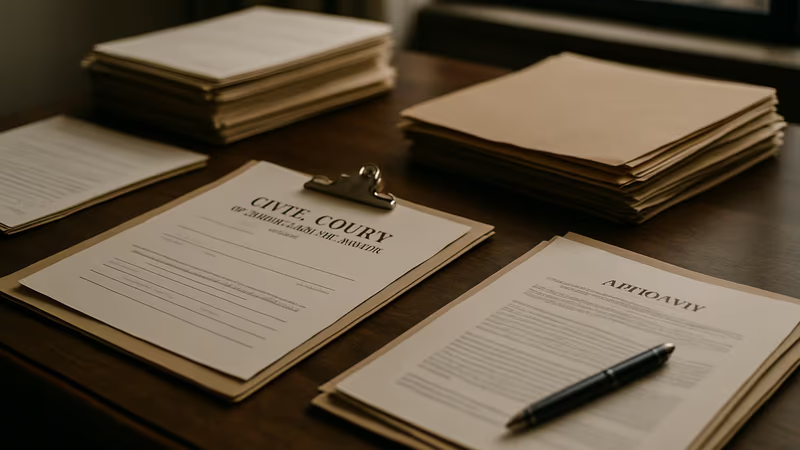Key Takeaway
Attorney Jason Tenenbaum analyzes a procedural error in default judgment timing under CPLR 3215(c) and questions whether courts can overlook mandatory jurisdictional requirements.
Default judgments in New York no-fault insurance cases must follow strict procedural timelines under the Civil Practice Law and Rules (CPLR). When insurance carriers seek default judgments against healthcare providers or other defendants, they must comply with specific timing requirements — particularly CPLR 3215(c), which mandates that applications for leave to enter default must be made within one year after the time to answer expires.
A recent appellate decision has raised important questions about what happens when courts enter defaults that don’t comply with these mandatory timeframes. The case highlights a fundamental tension between procedural requirements and the practical challenges of correcting judicial errors after the fact.
Understanding CPLR 3215(c) Requirements
CPLR 3215(c) establishes clear deadlines for seeking default judgments. When a defendant fails to answer or otherwise appear in a lawsuit, the plaintiff cannot simply wait indefinitely to seek a default. The statute requires applications for leave to enter default to be made within one year of when the defendant’s time to respond expired.
This timing requirement serves important policy purposes — it prevents plaintiffs from lying in wait and seeking defaults years later when defendants may have lost evidence or witnesses, and it promotes judicial efficiency by encouraging timely resolution of cases.
Jason Tenenbaum’s Analysis:
The default should have never been entered as the purported application for leave to enter a default was submitted more than one year after the time to answer, move or otherwise appear expired. Having entered an improper default, the carrier now has to prove lack of service otherwise the improper default must remain. This is wrong and dissent is correct.
There was a recent case where the Plaintiff failed to abide by CPLR 3215(g)(4) and the court, without resort to the 5015 factors, reversed the motion denying the application without resort to the 5015(a) factors. The only basis I can imagine for allowing this to stand is the Court of Appeals holding that 3215(f) is not jurisdictional, therefore, a default that was technically improperly entered could only be vacated through showing 5015(a) applies.
3215(c) is mandatory and appears to be jurisdcitional.
The other observation is that since defendant did not raise it below, the issue was not before the Court. But wouldn’t CPLR 3215(c) be an issue, due to its mandatory sua sponte effect, that a court could not avoid on appeal, which is a known exception to the civil preservation requirement?
Jurisdictional vs. Non-Jurisdictional Requirements
The distinction between jurisdictional and non-jurisdictional procedural requirements carries significant consequences. Jurisdictional defects cannot be waived and can be raised at any time — even by courts on their own motion (sua sponte). Non-jurisdictional procedural violations, while still important, may be waived if not timely raised by the parties.
This case presents a challenging scenario where procedural errors compound upon each other, creating difficulties for both courts and practitioners in determining the appropriate remedy.
Key Takeaway
When courts enter default judgments without following mandatory CPLR 3215(c) timing requirements, the procedural violation creates complex remedial challenges. The jurisdictional nature of these requirements may allow courts to address violations sua sponte, even when parties fail to raise the issue initially.
Related Articles
- Understanding the CPLR 3212(g) paradigm for motion practice
- Critical timing rules for summary judgment motions under CPLR 3212(a)
- When reasonable excuse can overcome default judgments despite jurisdictional challenges
- No-fault verification requirements and compliance standards
- New York No-Fault Insurance Law
Common Questions
Frequently Asked Questions
What is New York's no-fault insurance system?
New York's no-fault insurance system requires all drivers to carry Personal Injury Protection (PIP) coverage. This pays for medical expenses and lost wages regardless of who caused the accident, up to policy limits. However, you can only sue for additional damages if you meet the 'serious injury' threshold.

